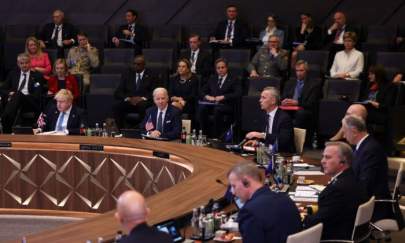NATO to Engage in Asia-Pacific to Counter China
Source: https://www.theepochtimes.com/nato-to-engage-in-asia-pacifc-to-counter-china_4390703.html
The North Atlantic Treaty Organisation (NATO) has announced that it will begin engaging in the Asia-Pacific region both practically and politically in light of Beijing’s growing influence and coercion and its unwillingness to condemn Russia’s invasion of Ukraine.
Speaking following the meetings of NATO Ministers of Foreign Affairs on April 7, NATO Secretary-General Jens Stoltenberg said the global implications of the Ukrainian conflict had propelled the organisation to step up its engagement with Asia-Pacific partners for the first time.
“We have seen that China is unwilling to condemn Russia’s aggression. And Beijing has joined Moscow in questioning the right of nations to choose their own path,” Stoltenberg said. “This is a serious challenge to us all. And it makes it even more important that we stand together to protect our values.”
NATO and its Asia-Pacific partners—Australia, Japan, New Zealand, and the Republic of Korea—met in Brussels to discuss international support for Ukraine.
Stoltenberg said the gathered foreign ministers agreed that NATO’s next Strategic Concept briefing, expected to be finalised for the Madrid Summit in June, must deliver a response on how they relate to Russia in the future and how, for the first time, they take into account that their security is affected by China’s growing influence and coercive policies.
“NATO and our Asia-Pacific partners have now agreed to step up our practical and political cooperation in several areas, including cyber, new technology, and countering disinformation,” he said. “We will also work more closely together in other areas such as maritime security, climate change, and resilience. Because global challenges demand global solutions.”





